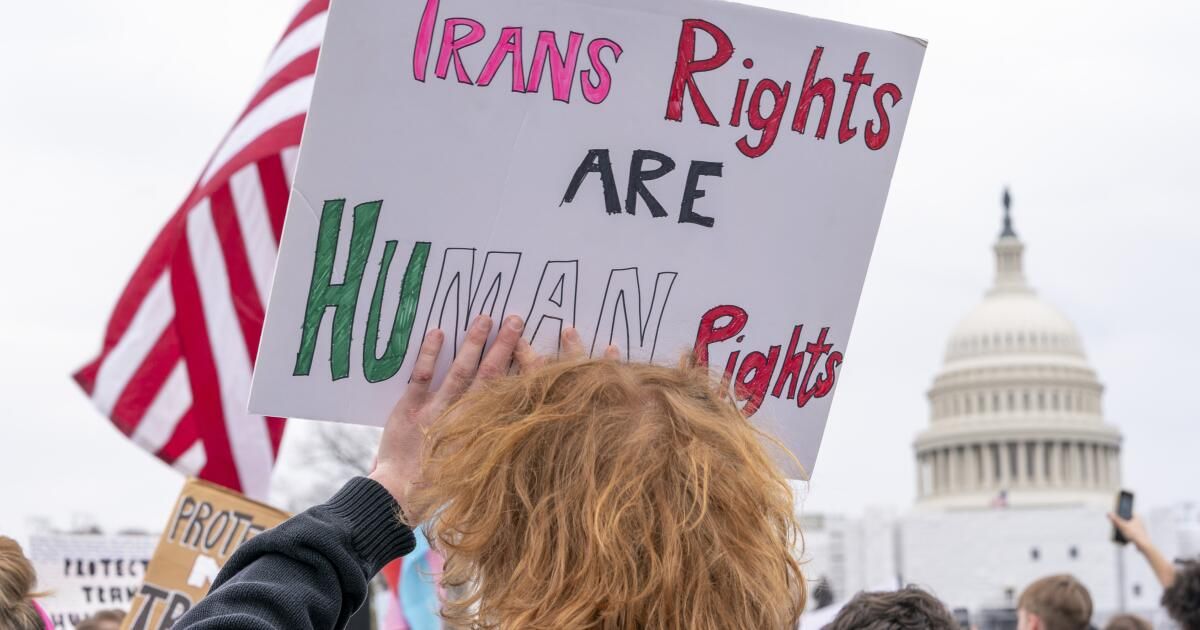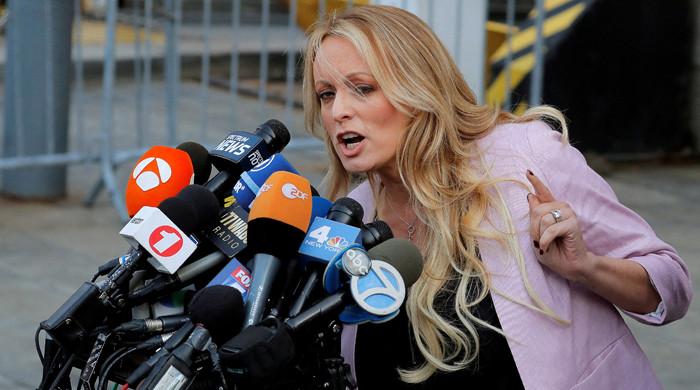WASHINGTON- Conservatives on the Supreme Court said Wednesday they are leaning toward upholding state laws in half the country that ban the use of hormone treatments for transgender teens.
Led by Chief Justice John G. Roberts Jr., they discussed an evolving medical debate over the use of puberty blockers and sex hormones for adolescents suffering from gender dysphoria.
Britain recently joined Sweden and Finland in sharply limiting these treatments for teenagers, they said. Roberts said judges should be careful when deciding disputes between medical experts.
“Doesn't that give us more weight to leave those determinations to legislative bodies rather than trying to determine them for ourselves?” Roberts asked Attorney General Elizabeth Prelogar as she opened her argument.
“My understanding is that the Constitution leaves that question to
to the representatives of the people and not to nine people, none of whom are doctors.”
Justice Brett M. Kavanaugh agreed.
“It just seems to me that the Constitution doesn't take sides on how to resolve this,” he said.
“There is obviously an evolving debate” about the risks and benefits of these medical treatments, he said. “England is going backwards and Sweden is going backwards. It seems to me to be a pretty strong yellow light, if not a red light, for this court to come in, the nine of us, and constitutionalize the whole area when the rest of the world is… stopping this kind of treatment.”
Justices Clarence Thomas, Samuel A. Alito Jr. and Amy Coney Barrett seemed to agree.
Alito chastised the Biden administration's attorney general for telling the court that there was an “overwhelming” medical consensus in favor of prescribing hormones for teens with gender dysphoria.
In response, Prelogar said Britain had not adopted an outright ban on such treatments, even if they are now quite limited.
Meanwhile, Justice Neil M. Gorsuch, who wrote the court's 2020 opinion that extended federal nondiscrimination protections to transgender employees, asked no questions during the three-hour argument.
However, the court's three liberals strongly argued that conservative state laws discriminate against transgender teens and should be struck down.
“Generally, parents decide” what is the best medical treatment for their child, Justice Sonia Sotomayor said. “But Tennessee has decided to rescind them.”
As of 2021, Tennessee and 23 other states have adopted laws prohibiting the prescribing of hormones and puberty blockers to minors under the age of 18 for the purpose of gender transition.
In defense of those laws, Tennessee Atty. Gen. Jonathan Skrmetti argued that the practice of medicine is a state matter, and lawmakers said hormone treatments are risky and unproven for teenagers.
The Biden administration urged the court to hear the Tennessee case and declare the law discriminatory and unconstitutional.
Prelogar and ACLU attorney Chase Strangio urged the court to rule that because the laws discriminate based on sex and gender, they are suspect and should be struck down.
At a minimum, they said, the court should send the Tennessee case back to a trial judge to decide whether the state can justify what Prelogar and Strangio called gender discrimination.
Strangio said Tennessee's law “has eliminated the only treatment that relieved years of suffering for each of the teen plaintiffs.”
A ruling in favor of Tennessee would be a victory for conservative states, but would not directly affect California or other Democratic states, which do not impose similar limits on medical treatments for transgender youth.
However, President-elect Donald Trump campaigned against what he called “left-wing gender madness.” Upon taking office, he said, he would direct federal agencies to “cease all programs that promote the concept of sex and gender transition at any age.”
It's also possible that after taking office in January, Trump's Justice Department appointees could notify the court that they would like to drop the government's appeal in the Tennessee case.
The justices could choose to dismiss the case without ruling, or they could proceed by focusing solely on the appeal filed by the ACLU.
Kavanaugh and Barrett asked about competitive school sports and whether officials can limit transgender girls from participating. But they agreed that the issue will not be resolved in this case.












